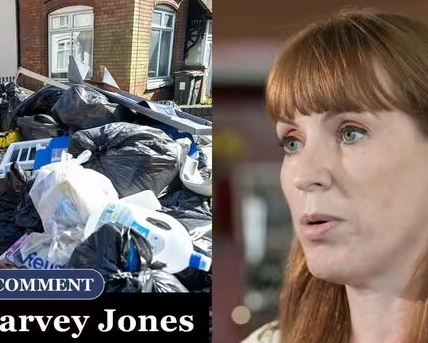Anti-poverty thank tank warns we will get poorer between 2024 and 2029

Average household disposable incomes will fall £500 under Chancellor Rachel Reeves (Image: Getty)
Rachel Reeves is making British households £550 poorer, damning new research shows. A study by the Joseph Rowntree Foundation, which campaigns against poverty, predicted disposable incomes will be on average £550 lower per year by September 2029 than in September 2024.
The dire prediction is based on what’s likely to happen to inflation, wages and interest rates in the years to come, based on figures from the Bank of England and Office for National Statistics. According to the Joseph Rowntree Foundation, the economy has been in dire straits since the banking crisis in 2009. But it is warning that the fall in incomes in the current five year period would be the worst living standards record of any parliament since detailed records began in 1961.
Chris Belfield, Chief Economist and Principal Policy Adviser at think tank, said: “Families need to see their living standards improve. They will likely vote for a government that makes this happen and punish one that fails to deliver. The last Labour government knew this and in their first term they pulled 300,000 children out of poverty alongside rising living standards overall, winning a further two terms.
“A decade that leaves families worse off isn’t inevitable. The government has recognised the gravity of the situation by committing to delivering higher living standards. It must introduce targeted policies like investment in social security, and interventions in key markets like housing and energy which affect people’s financial security, if they are to stand by their commitment.”
Looking at the ten year period between 2019 and 2029, the campaigning think tank said families in the bottom third of incomes will see their disposable income fall by £1,110 per year (6.2%).
Middle-and high-income families will see their incomes fall by £380 per year (1.1%) and £970 per year (1.3%) respectively.
Lone parents will see the biggest drop in living standards over the course of a decade, between 2019 and 2029, followed by couples with children and single working-age adults without children.
Working-age households will be around £900 per year worse off, compared to £170 for the average pensioner household.
Couples with children are set to be £1,580 per year (2.8%) worse off while lone parents are set to be £1,510 per year (5.6%) worse off. In comparison, couples without children will be around £180 per year (0.3%) worse off.
The think tank is urging the government to create a new “minimum floor” in Universal Credit so there is a line below which no one’s payment can fall because of the benefit cap, and to remove the two-child limit in Universal Credit.
It also wants the Government to unfreeze the Local Housing Allowance and give low income households more help with energy bills.
